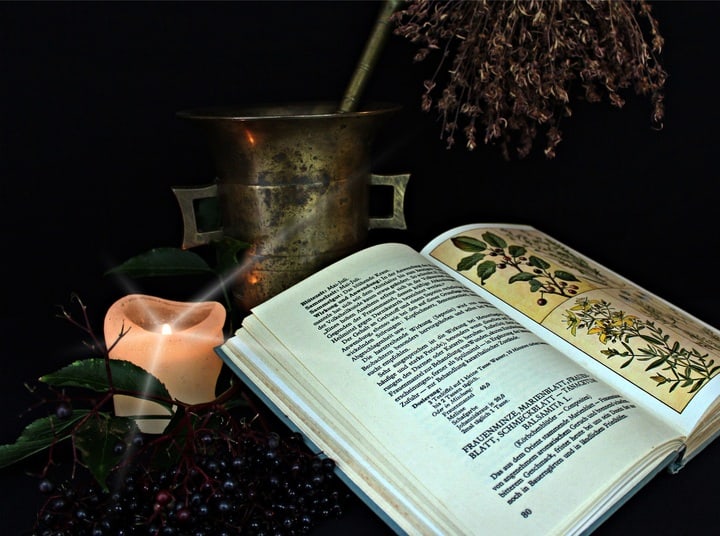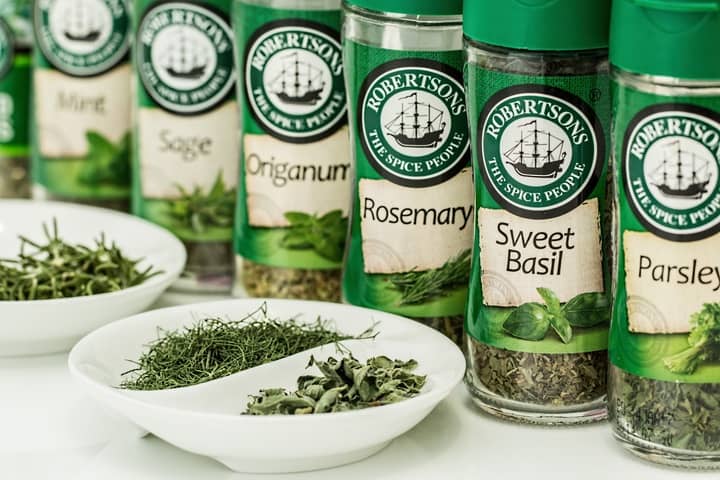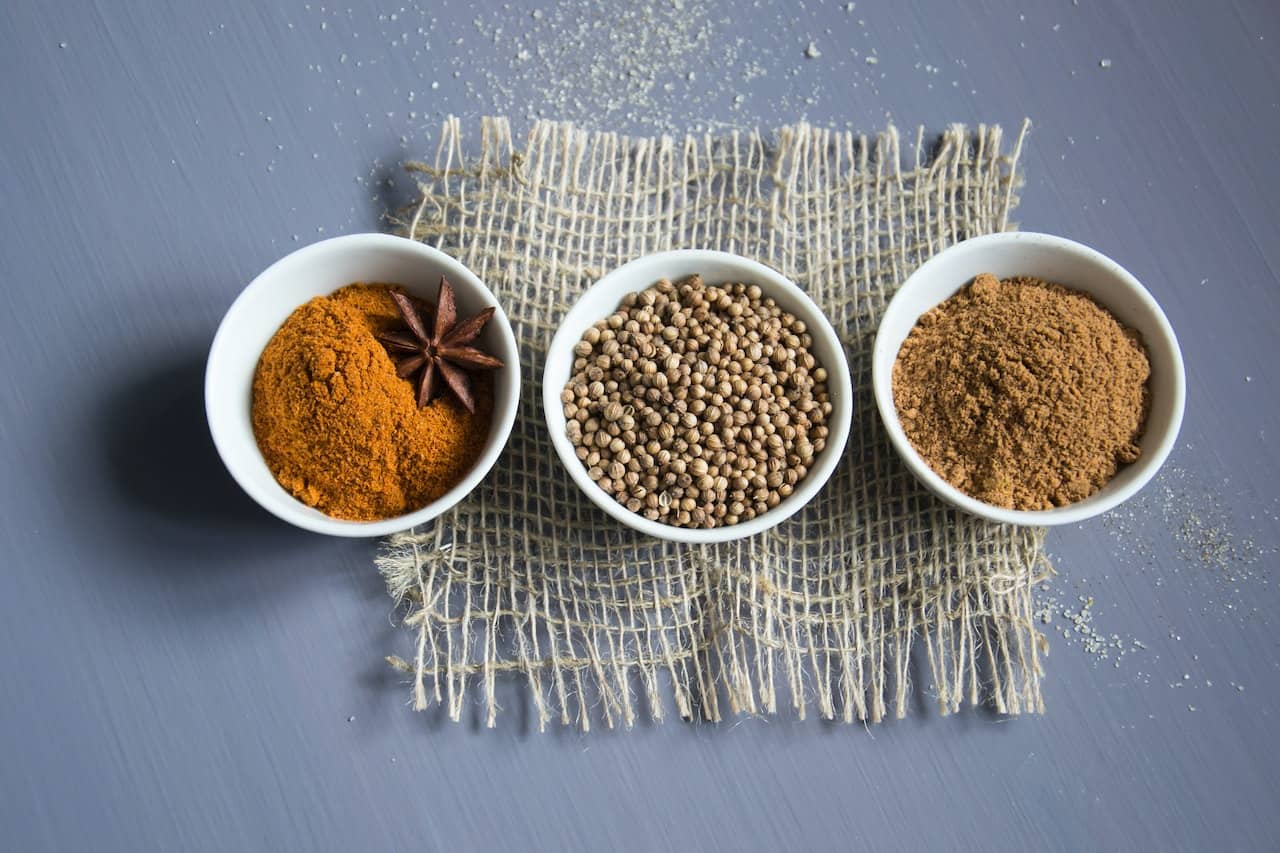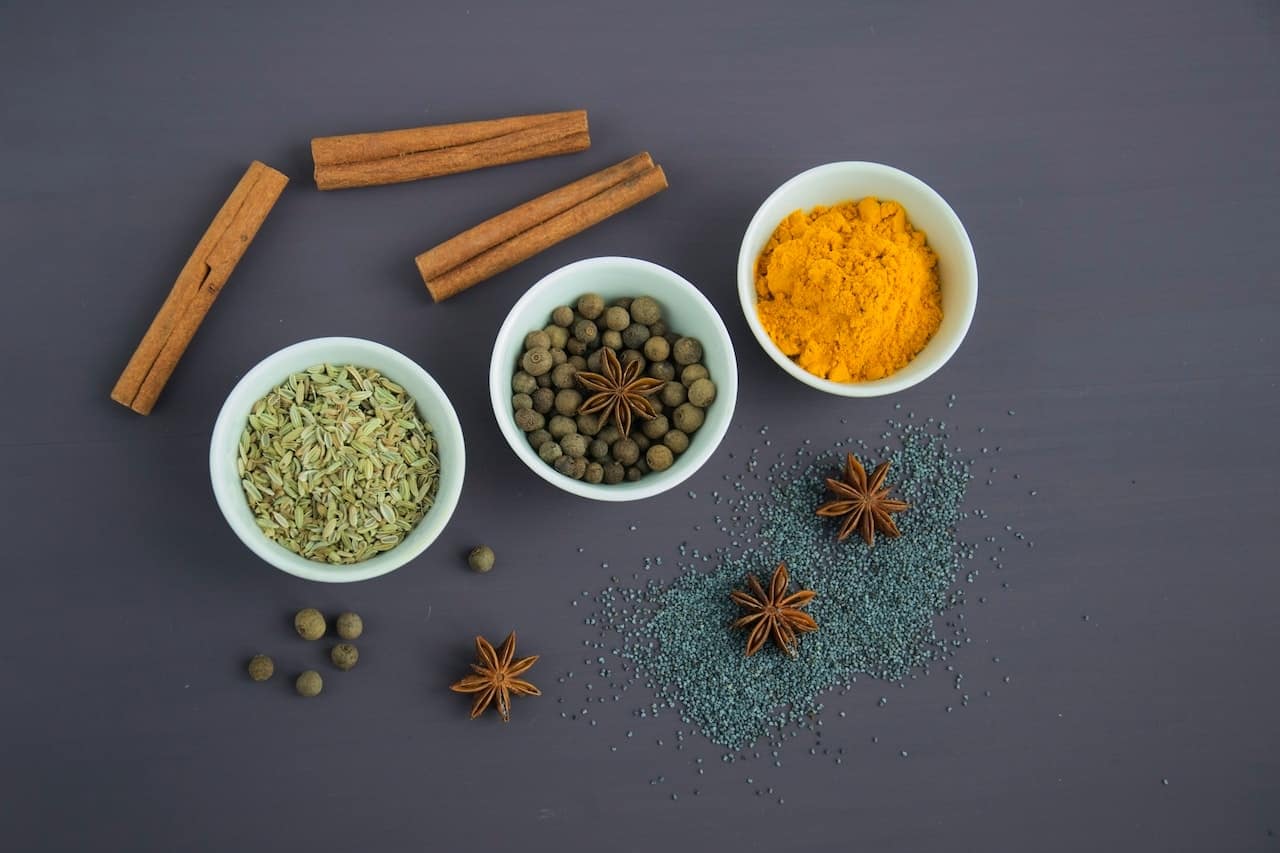Do you want to know the best herbs to enhance memory and brain focus? This post will give the best herbs to help you maintain your memory and focus. Don’t consider this “normal” if you are having trouble remembering things and your focus isn’t as strong as it used to be. Some great herbs do offer to improve memory and assist cognitive functioning.
Your brain works hard daily to absorb and evaluate information, assist with decision-making and problem-solving, govern emotions and movement, and regulate body processes and emotions. Maintaining brain health is crucial for preventing neurodegenerative diseases, including dementia, Alzheimer’s, and Parkinson’s.
Your brain needs assistance to work at its peak since it is continuously digesting, evaluating, making decisions, and reacting. Herbs for memory and the brain might be helpful if you fight mental tiredness after a long day and maintain brain abilities as you age. Here are the best herbs that can help you. Keep reading to know more.
What is an Herb?
Herbs are a frequently used class of plants with savoury or fragrant properties for flavouring & garnishing meals, medicinal uses, or fragrances, excluding vegetables and the other plants eaten for macronutrients. Herbs and spices are more prevalent in their culinary application. While spices are often dried and made from other plant parts, such as seeds, bark, roots, and fruits, herbs typically refer to the leafy green or blooming sections of a plant (either fresh or dried).
Herbs have been known in various ways, including cooking, medicine, aromatherapy, and occasionally spirituality. The term “herb” has different meanings when used for culinary and medical purposes; whether used for spiritual or medicinal purposes, any part of the plant, including the roots, leaves, seeds, blossoms, root bark, internal bark, resin, and pericarp, may be referred to as a “herb.”
Medical History of Herbs

Herbs and man have a long and devoted history together. Throughout the beginning of time, people have utilized herbs. Leaders in ancient Rome and Greece were honored with dill & laurel. Dill is known as an air purifier by the Romans. The renowned Greek physician Hippocrates compiled a list of 400 plants often used in the fifth century B.C. In his book “De Materia Medica,” the Greek physician Pedanius Dioscorides who was a member of the Roman army, outlined the therapeutic use of several plants.
Herb is one of the most important herbal publications today. Herbs also helped cover up the smells of those who took infrequent or no baths. Herbal medicine did not advance well at this time. Roman Catholic Church started burning herbalists after associating them with paganism and witchcraft.
Several of the earliest inhabitants planted herbs for culinary and medicinal purposes. Native Indians frequently utilized herbs to tan and color leather.
The Best Herbs for Memory and Focus

Some herbs that can help you focus and remember things may already be in your pantry or refrigerator. Investigation knew the effects of some of these herbs on Alzheimer’s disease and the effects on others’ cognition generally had been investigated. These herbs have been shown in tests to affect the brain positively.
🌿Ginger Biloba
Chinese people call this plant the “fountain of youth” because of its capacity to delay aging and improve memory. Excellent for circulation, ginkgo promotes the flow of blood to the brain & central nervous system. As a result, this herb is necessary for those with dementia, dyslexia, and some forms of depression. It also helps to improve memory and focus.
Gingko is a herb that improves oxygen delivery to tissues and repairs damaged veins, capillaries, arteries, and both of which can slow the process of aging. The ideal way to consume gingko for a therapeutic dose is as a liquid herbal tincture or pill. It can also take as tea up to three times a day.
🌿Bacopa Monnieri
A nerve tonic herb with potent anti-inflammatory and brain-improving qualities, Brahmi is also known as. Bacopa monnieri has been shown to improve concentration and attention, improve memory, alertness, and cognitive abilities, lessen worry and tension, and lessen the symptoms of ADHD. It also balances the neurological system.
Because of its abundance in antioxidants, which shield cells from harm, and a substance known as bacosides, bacopa has also demonstrated anti-cancer potential. Bacopa is available in several dosage forms, including capsules, tinctures, liquid herbal preparations, powdered form for tea, and addition to ghee. Drink up to three glasses of bacopa tea daily.
🌿Gotu Kola
A widely used herb in Chinese and Ayurveda medicine that improves cognitive and memory abilities. Gotu kola, sometimes called the herb of vitality, has effectively treated Alzheimer’s patients due to its neuroprotective qualities and capacity to shield brain cells from harm.
It is a therapeutic herb that is also anti-inflammatory and regenerative, especially for arteries and blood vessels that assist blood flow to the brain. You can consume up to three cups of gotu kola tea made from dried or powdered herbs daily, as well as a liquid tincture and capsules.
🌿Rosemary
A substance that stimulates circulation, which means it increases blood flow to and from organs and tissues. It has carnosic acid, a neuroprotective substance that can shield the brain from the harm produced by free radicals from poisons and environmental chemicals.
The scent of rosemary enhances mood, focus, and performance. Use dried rosemary herbs to make tea, or add it to your cuisine. A few drops of rosemary essential oil can also be added to a vaporizer, a bath, or a carrier oil & applied topically. It is better to consume rosemary as a liquid tincture or capsule for a therapeutic dosage.
🌿Cayenne Pepper
Cayenne pepper is well-known for effectively delivering blood to the brain. Cayenne pepper can enhance the overall cleansing of the blood system by enhancing circulation and blood flow. This might lessen the accumulation of poisons (such as free radicals) that can harm healthy cells.
Vitamins A and E, abundant in cayenne pepper, are crucial for healing damaged cells, delaying aging, and lowering inflammation, especially in the tissues surrounding the brain. Add cayenne pepper to dishes or drinks like salad, stew, and soups. You can also take it as a liquid tincture or in pill form.
🌿Ashwagandha
According to a 2010 review study, Ashwagandha, another Ayurveda herb, has been shown in preliminary studies to prevent the development of beta-amyloid plaques. Also, the study notes that preliminary research suggests Ashwagandha may help the brain by lowering oxidative stress (a condition that may lead to the development & progression of Alzheimer’s disease).
🌿Brahmi
This plant is renowned for its mind-enhancing and nervous system-soothing properties, especially useful if you want to teach your brain to focus more effectively. Hindus refer to global awareness as Brahman, and the god Brahma controls all the world’s “creative” energies. The term “energy” or “shakti” of Brahman derives from “Brahmi.” Brahmi has much to live up to, considering that its name comes from these origins, yet it enhances memory and attention.
Brahmi is a popular natural cure for those having trouble finding ways to increase brain function. It has been mentioned in ancient Indian scriptures dating back to the 6th century. This plant increases blood flow to the brain, which benefits mental processes like memory by enhancing communication among the brain’s nerve cells. Brahmi also regulates how stress hormones react, serving as a natural stress reliever.
🌿Ginseng
Ginseng, one of the most well-known plants used in herbal medicine, has compounds called ginsenosides that have anti-inflammatory properties. According to a study written in 2018, preliminary lab research has shown that ginsenosides may aid in lowering beta-amyloid levels in the brain.
🌿Lemon Balm
Lemon balm, a herb widely brewed into a tea and used to treat insomnia and anxiety, may enhance cognitive performance. Forty-two individuals with mild to severe Alzheimer’s disease participated in a 2003 research written up in the Journal of Neurosurgery, Neurology, and Psychiatry. For a period of four months, they received either a placebo or even a lemon balm extract.
🌿Guarana
Due to its stimulating properties, guarana is an ingredient in energy beverages and supplements. Many compounds found in it, including caffeine, saponins, & tannins, are regarded to benefit mental clarity and vigor positively. While research on humans has had conflicting findings, other studies have suggested that taking guarana extract supplements, either alone or in combination with other nutrients, at dosages between 37.5 and 300 mg, may help improve focus, alertness, and memory.
A short research including ten pentathlon competitors discovered that taking 300 milligrams of guarana as a supplement may help lessen feelings of exhaustion while enhancing physical and mental performance. Guarana is harmless, but when consumed in excessive dosages, it might have negative effects, including accelerated heart rate and anxiety.
🌿Rhodiola Rosea
Rhodiola rosea has been used for millennia in many traditional medical practices worldwide to enhance memory, focus, and endurance. In both human and animal trials, it has lessen mental tiredness, enhanced brain function & mood, and improved exercise performance. For those who experience burnout or known as “emotional, motivational, and physical weariness as a result of continuous job stress,” Rhodiola rosea may be very beneficial.
Four hundred milligrams of Rhodiola rosea extracts taken daily, compared to baseline, significantly reduced feelings of weariness, decreased attention, and loss of joy, according to a 12-week trial of 118 burnout sufferers. Rhodiola rosea supplements may also improve exercise performance and help persons with chronic weariness.
🌿Tulsi
Holy basil, or tulsi, is a particularly remarkable memory plant. Tulsi is said to clear and awaken the mind, providing mental clarity. It is also thought to calm the nervous system and give the adrenal glands time to recover after being worn out by stress or worry.
This herb improves adaptable energy & nourishes the vital spirit while modulating the stress reaction by functioning as a natural stress reliever. It is the ideal remedy for the stresses of contemporary life. Tulsi possesses adaptogenic properties that enhance the body’s reaction to environmental, biological, emotional, and physical stress, giving one greater endurance and, eventually, better memory and focus.
🌿Matcha and Green Tea
The same plant is used to make both green tea & matcha, but matcha is more potent. Both are abundant in antioxidants, which help guard the body against the harm caused by free radicals while enhancing memory and attention. Moreover, different chemicals in green tea & matcha have been linked to improved heart health, stress reduction, and heightened alertness.
Because green tea and matcha are produced from the same plant as normal black tea, they naturally contain caffeine. The difference between green tea, matcha, and coffee is that green tea and matcha contain a substance called L-theanine, an amino acid that interacts with caffeine and other plant-based substances to increase the brain’s levels of serotonin, dopamine, and gamma-aminobutyric acid (GABA), all of which significantly improve mood and provide stress relief.
🌿Turmeric
One well-known super-spice is turmeric. It is an all-around antioxidant and anti-inflammatory and affects practically every physiological system. So how does this help the brain? Because of turmeric’s potent anti-inflammatory properties and antioxidant properties, the brain is extraordinarily well-protected. Moreover, it improves circulation and cardiovascular health, especially in the brain.
Thus, turmeric, a root associated with memory benefits, can improve overall cognitive functioning while offering high protection, much like Brahmi and gotu kola. This makes turmeric an excellent herb for students’ developing brains looking for practical strategies to enhance memory and concentration.
Should You Use Herbs for Brain Health?
Even while certain herbs may benefit your brain, no herbal medicine should ever be used instead of professional care for treating a disease that compromises your brain’s health. It’s vital to remember that consuming herbs in larger quantities shouldn’t be preferable, even though doing so might be healthful and advantageous. The danger of negative side effects increases when using herbs in supplements since they are more concentrated.
Seizures have been reported in children taking sage supplements, and cheilitis has been reported in adults. The blood-thinning effects of turmeric, ginkgo, and ginseng, particularly in concentrated (vitamin) forms, increase the risk of bleeding, especially in those who are also taking other blood thinners and anticoagulants. Ginseng can alter blood pressure (making it higher or lower), combined with several drugs, and, in rare instances, result in a severe allergic response or liver damage. In rare cases, gotu kola has been connected to liver damage.
How to Choose Herbal Supplements Safely
The effects of herbal supplements might be strong or interfere with other medications. Do not perform a self-diagnosis. Before using any herbal supplements, consult your doctor.
🔹Get informed. Consult your doctor and herbal supplement suppliers to learn everything you can about the herbs you are taking.
🔹Use just the recommended dosage of herbal supplements and carefully follow the label’s directions. Never take more of the supplement than is advised, and find out who shouldn’t use it.
🔹Consult a specialist. Locate a qualified herbalist and naturopathic doctor with experience in this area who is skilled and certified.
🔹Consider the effects. Reduce the dosage or stop using the herbal supplement if symptoms like nausea, vertigo, headache, or an upset stomach appear.
🔹Anticipate allergic responses. Breathing difficulties may result from an extreme allergic response. If such a situation arises, seek assistance by dialing 911 or the local emergency number.
🔹Do some research on the herbal supplement manufacturer. Selecting a brand from a reputed manufacturer is advisable because not all herbal products are made equal.
The Importance of Herbs to The Brain Health

For some reason, herbs are beneficial to the brain. Here are a few instances:
👍Neuroprotective Properties
Many herbs have what are known as neuroprotective characteristics, which indicates that they aid in preventing brain injury and promoting normal brain function. For instance, ginkgo biloba boosts cognitive performance and improves blood flow to the brain.
👍Antioxidant Properties
Another element that can harm brain cells and aid in the emergence of neurological illnesses is oxidative stress. Antioxidants found in many herbs, including sage and rosemary, can aid in preventing oxidative stress.
👍Anti-inflammatory Effects
Many neurological conditions, including Parkinson’s and Alzheimer’s diseases, have been related to chronic inflammation in the brain. Certain plants, including ginger and turmeric, have anti-inflammatory properties that can help lower the chance of developing these illnesses.
👍Adaptogenic Properties
Adaptogens are plants that increase the body’s resilience and ability to adapt to stress. Adaptogens like rhodiola and Ashwagandha can enhance cognitive performance while lowering stress.
Overall, utilizing herbs as supplements or including them in your diet may be a terrific method to enhance brain function and health. But if you have a medical issue or are on medicine, you must see your doctor before beginning any new supplements.
Natural Ways to Increase Your Vitality
If you find it difficult to stay awake or if you need to drink a lot of coffee in order to survive before lunch, you’re not alone. Fortunately, there are a number of healthy things you can do to feel more energized and less exhausted. In reality, a few minor adjustments to your daily routine can greatly impact many other areas of your health, including how energized you feel. Here are some natural ways to increase your health vitality.
☑️Get more Rest.
Many people shave off hours that they should be sleeping, such as delaying their bedtime so they may finish a task or prepare for a test. Lack of sleep may deplete your vitality, leaving you irritable, sluggish, and lethargic the following day. Although each person’s demands for sleep may differ significantly, doctors typically advise aiming for at least seven hours each night to promote overall health and increase energy levels.
Setting up a regular sleep pattern and unwinding at the end of the day with a bubble bath, a book, or some calming music may help if you have difficulties falling asleep. According to several studies, restricting your use of electronic gadgets like your phone, laptop, and television before bed may also help you get better quality sleep and stay awake during the day.
☑️Reduced Stress
Those who lead busy lifestyles frequently experience stress, anxiety, or overload. Stress has a negative impact on both your mental and physical well-being, in addition to being strongly associated with weariness. Ask yourself whether you can get rid of anything that regularly makes you feel stressed or exhausted.
It is not always easy to eliminate all the stress sources in your life. But, if you can lower your level of stress, it could help you feel more energized. Take some time to unwind, read, or go for a stroll to boost your energy levels right now. Try mindfulness or meditative practices as well; these help you feel less anxious.
☑️Moving More
Your chance of developing chronic illnesses, such as heart disease, type 2 diabetes, and obesity. Also, some studies indicate that increasing your physical activity will help you combat weariness and have more energy.
One small research found that, compared to a control group, university students who engaged in a low-intensity jogging program three times per week for six weeks saw substantial reductions in fatigue and improved sleep quality. Try getting up from your desk & going for a stroll during your lunch break, using the stairs instead of the elevator, and walking to school or work rather than taking the car.
☑️Quit Smoking
Smoking can have a detrimental impact on many aspects of health and may raise the chance of developing several chronic illnesses. Moreover, the tar and chemicals in the smoke decrease how well your lungs function. As a result, your body will receive less oxygen over time, making you feel exhausted. Quitting smoking might have various positive effects on your health, including more energy.
For some people, switching from cigarettes to a nicotine replacement product like gums, patches, and lozenges is beneficial. But after you’ve decided to stop, you should contact a medical expert, such as a family doctor. They can lead you to the best assistance options to meet your needs.
☑️Reduce Alcohol Intake
Alcohol consumption can have a soothing impact and may cause you to feel sleepy and at ease. Many individuals have a false belief that consuming alcohol can help one fall asleep more quickly. Yet, consuming alcohol frequently before bed might compromise the quality of your sleep. Alcohol can also have a diuretic effect, which means that it makes you produce more pee. Thus, having a few drinks before bed might prevent you from sleeping by making you awake in the middle of the night.
For this reason, it’s better to consume moderate amounts of alcohol and avoid drinking too much just before bed. Moderation of alcohol the Centers for Disease Control and Prevention (CDC) as one drink for women and two for men per day. Consider contacting a healthcare expert for extra advice if you struggle to control your alcohol use or want more help.
Frequently Asked Questions
What effect do these herbs have?
The chemicals found in these herbs can enhance brain function by improving blood flow to the brain, lowering inflammation, and safeguarding neurons from harm. Moreover, certain herbs contain adaptogenic qualities that aid the body in coping with stress.
Is it safe to use these herbs?
While these herbs are usually considered safe, it’s always a good idea to see your doctor before taking any supplementation, especially when pregnant, nursing, or on medication.
How should I consume these herbs?
If you have any doubts, see your doctor or a licensed herbalist in addition to following the dose recommendations on the container.
When can you expect to see results?
Depending on the person and the dose is taken, these plants can have various effects. It may take a few weeks before you start seeing effects, so it’s crucial to be patient and steadfast with your supplement regimen.
Do these herbs have any negative effects?
Even though these herbs are largely risk-free, some people may have negative side effects, including nausea, headaches, vertigo, or allergic reactions. Talk to your doctor and stop taking the herb if you develop negative effects.
Final Thoughts
Use herbs with neuroprotective characteristics to increase memory and attention, lessen the negative effects of inflammation and pollutants, and boost blood flow to the brain & supporting tissues to support the health of your brain naturally. While some evidence suggests some herbs may help with memory and concentration, it is crucial to remember that these effects are often mild and that further research is required to appreciate their possible advantages and disadvantages completely. Do you want to know best herbs for aerogarden? Click Here!

